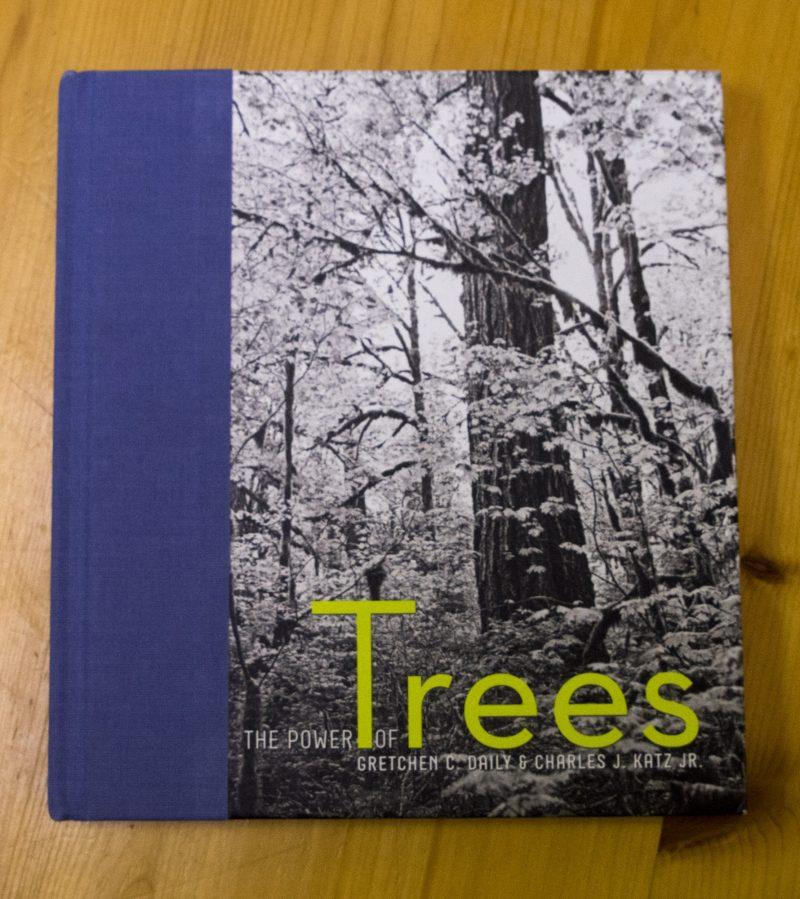As this semester’s installment in the Distinguished Scientist Lecture Series, Gretchen Daily, the Bing Professor of Environmental Science at Stanford University and director of Stanford’s Center for Conservation Biology, spoke to about 400 members of the Trinity community on Thursday, Oct. 25, about the importance of conservation and creating inclusive green growth. Daily spoke about her experience with conservation efforts around the world, which was followed by a question-and-answer session with the audience.
Daily was introduced by senior Molly Lenihan, a biology and Spanish double major. Lenihan has researched milkweed and monarch butterflies with Kelly Lyons, professor of biology, who was instrumental in bringing Daily to Trinity’s campus.
“[For the Distinguished Lecture Series,] they try to invite scientists who are doing really relevant and very important work, and obviously [Daily] is doing some really amazing and useful stuff with the InVEST software. She didn’t make it, but she’s used it, and she’s helping implement it across the world,” Lenihan said.
InVEST stands for Integrated Valuation of Environmental Services and Tradeoffs. It is a software that has been very useful in helping scientists and governments create a unified approach to conservation and economic growth. Daily emphasized the importance of businesses and governments working with scientists and consumers to create a universal method for conservation and to define natural capital.
“Natural capital: what is the value of it? We’re talking about Earth’s lands, waters, all the life forms. Obviously we can’t just boil it all down to a few dollars and cents here and there,” Daily said. “In the Natural Capital Project — this is a big partnership, going way beyond science — there are about 250 partners total around the world developing the ideas and trying to systematize a view and come up with a common way of talking about the values of nature.”
While Daily did research in Costa Rica, she noticed that the country continues to rely on agriculture as it moves into the 21st century. This reliance has caused worry that deforestation will drive many species of plants and animals to extinction.
“Many native plants are never going to make it outside of their forest habitat, but a lot of the animals can do well out in the cropped fields and pastures if there is forest nearby. That gives us real hope,” Daily said. “This is our hope, to bring [these animals] that are native to Costa Rica into this century.”
Daily spoke more in depth about her experience researching two important species to Costa Rican coffee farms: birds and bees. Coffee farms are a major source of income for the country, so their success is important to economic development.
“Bees boost coffee yields by 20 percent,” Daily said. “With birds, we found that the main infestation of pests on coffee are suppressed by 50 percent.”
Daily also mentioned the importance of nature’s effect on human mental health. In a study, Daily and colleagues discovered that living in cities heightens the risk of anxiety by 20 percent and the risk of mood disorders, including depression, by about 40 percent. When subjects walked in nature rather than on a busy city street, they scored higher on memory and mood tests while stress and anxiety went down.
“[There are] more and more people in cities, less and less time and access to nature, and more and more being hooked into our devices,” Daily said.
First-year Paige Reistle attended the lecture because she plans on majoring in environmental policy. She found the effect of nature on mental health surprising.
“I didn’t realize how big of an effect being in nature had on mental health. I knew it had something to do with [mental health], but I didn’t realize how big of an impact nature has,” Reistle said.å
Daily concluded by speaking about the efforts being made by governments to incentivize green business practices, particularly in Latin America and China. Around 49 percent of land has been zoned to protect natural capital, and these green business practices also benefit citizens and landowners.
“Presently, about 200 million people [in China] are being paid to restore the ecosystem, to restore nature… with the dual goals of poverty alleviation and inclusive growth,” Daily said. “[China is] aiming to completely redo capitalism and bring natural capital [as a] part of the equation of an inclusive green growth model. There is a conception that it costs too much to protect the environment when it’s all we can afford.”
Attendees of the lecture stressed how important the environment is to humans and explained why conservation efforts are important.
“The environment is kind of all we have. I think [Daily] said in the beginning — we have always depended on it, and now it’s depending on us because we’ve taken over so much of the globe, and we’ve done so many destructive activities that if we don’t do something intentionally, it’s going to disappear, and then we’ll disappear afterward,” Lenihan said.
Reistle agreed.
“We need to live, and we live here, so if we don’t fix [the environment], we’re going to die,” Reistle said.







